Community Stories:
Impact entrepreneurship: where purpose powers profit
From finance to healthcare, education to climate, Cartier Women’s Initiative fellows illustrate how women impact entrepreneurs are achieving both purpose and profit — and investors are taking note.
“While this acquisition is a business milestone, for me it is most importantly a validation that purpose-driven ventures can grow, scale and influence mainstream systems.”
Women impact leaders choose entrepreneurship as their lever for social and environmental good. However, it is sometimes overlooked that the driving force behind this positive impact is a successful, profitable and investable business.
Insights from our applicant data
With hundreds of talented entrepreneurs submitting applications each year, the Cartier Women’s Initiative’s data is a rich source of information on women impact entrepreneurs worldwide.
Applicants have diverse academic backgrounds — a quarter study STEM disciplines, another quarter social sciences and humanities while nearly half study business or finance. These women also bring significant prior entrepreneurial or private‑sector management experience to their impact startups, either through past entrepreneurship experience (32%) or corporate management roles (63%).
These varied educational, personal and professional experiences, as well as exposure to different cultures and contexts, all shape their desire and ability to address social and environmental issues — and set them up with the skills to do so while making a profit.
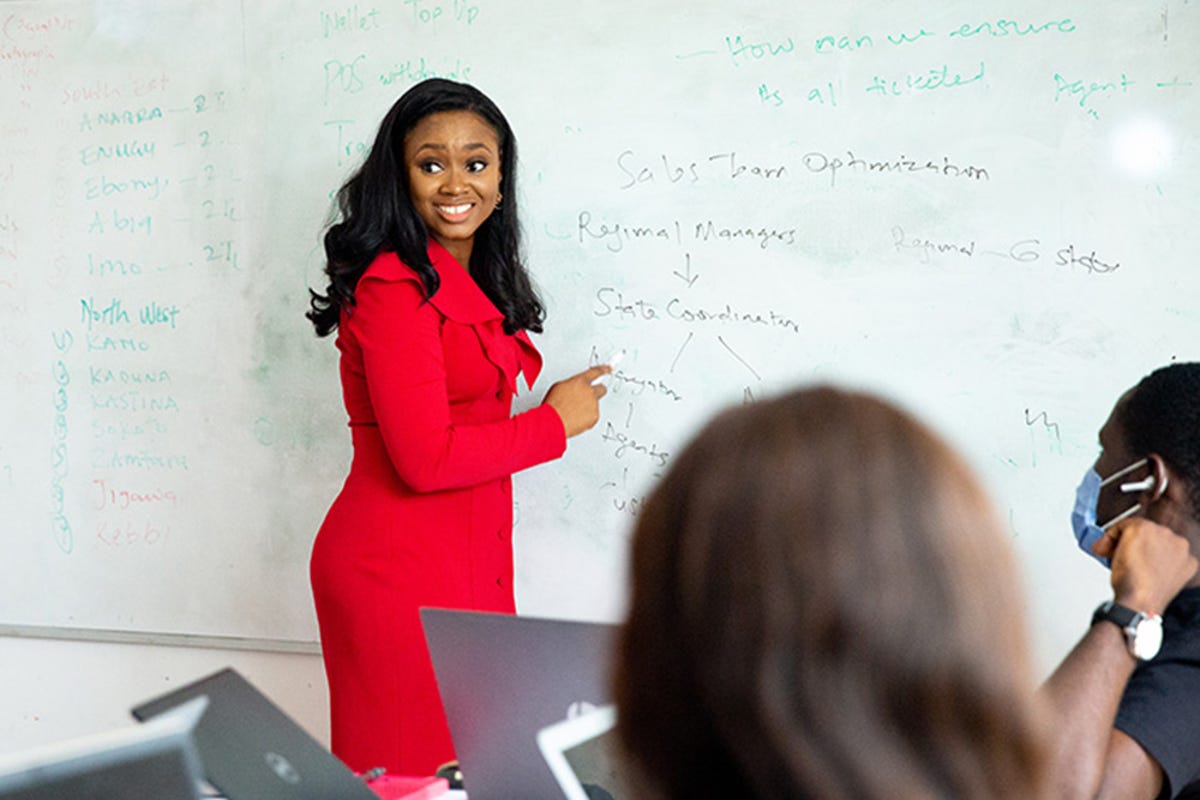
2021 fellow Tomilola Majekodunmi
From finance to founders: turning market experience into scalable ventures
Take 2023 fellow and ex-investment consultant Lina Xu, quoted above, whose business Telecare was acquired by Teladoc Health in August 2025. Lina was inspired to set up the tech-enabled provider of specialist digital healthcare when she moved to Australia and was shocked by how outdated and inefficient the secondary healthcare system was. Her prior experience helped her recognize where she could leverage technology to enable equitable access to healthcare. As a result, Telecare grew to become the leading supplier of virtual healthcare across the country.
Meanwhile, 2021 fellow Tomilola Majekodunmi harnessed her experience as an investment manager and fintech research analyst in Nigeria, Australia and Singapore to build microfinance bank Bankly, which was acquired by C-One Ventures in April 2025, an investment company focused on technology and finance. Tomilola’s finance background gave her the tools to shape a solution to the challenges she witnessed in Nigeria’s informal banking system, with a particular focus on driving financial inclusion in the country. That solution was what she calls “the bank for the unbanked”. Where others saw risk, Tomilola saw opportunity.
In Egypt, 2024 fellow Rania Gaafar built ADVA, a marketplace providing finance for essential services like health, education and solar panels, from a similar dissatisfaction. As a senior manager for a large ride-hailing company, she saw its self-employed drivers struggle to access financing for unexpected expenses and was determined to build a better way. Under Rania’s leadership, ADVA became a trailblazing major player in the Egyptian fintech space, developing a proprietary AI-driven credit scoring model that utilizes alternative data such as mobile usage insights to unlock access to finance at scale, with women benefiting most of all. In 2025, ADVA was acquired by Maseera, a portfolio company of the transformational investment platform 2PointZero.

2014 fellow Rama Kayyali
Better learning at scale: educational impact ventures attracting strategic acquirers
Storytellers, educators and healthcare leaders are building scalable, venture-backable impact businesses, too.
See 2014 fellow Rama Kayyali, whose edtech business Little Thinking Minds was acquired in 2025 by Seesaw, the leading global PreK-12 learning experience company. Little Thinking Minds was born when a search for engaging Arabic-language audiovisual content to nurture her son’s early language skills brought home the lack of quality educational content and the Arabic literary gap in the Middle East. Rama’s experience in documentary-making, media acquisitions and content creation set her up perfectly to tackle this challenge.
Jenny Cho, fellow from 2019, also built and exited a thriving edtech business. She started her career in investment banking and marketing data analysis, but a future as an entrepreneur was always on her mind. In 2016, Jenny seized her opportunity and launched SAY Global, an innovative online Korean language platform, to neatly tackle two issues at once — the difficulty of finding high-quality Korean language classes abroad and the social isolation of many Korean retirees. In 2022, SAY Global was acquired by MARVRUS, an AI startup aiming to revolutionize how children learn by creating an education-focused metaverse.
Ingrid Sealey, 2023 fellow and founder of Teach Well, is among the 20% of applicants with nonprofit experience, hers focused on improving the educational outcomes of children in disadvantaged communities. This record, combined with her background in business transformation, uniquely primed her to scale Teach Well, which delivers impactful professional learning programs for teachers. It now partners with 8,000+ teachers and school leaders across more than 750 schools across Australia. Unlike the other businesses mentioned here, Teach Well was acquired by a not-for-profit, Ochre Education, as part of its sustainable funding model, with revenue from Teach Well funding Ochre Education’s charitable operations.
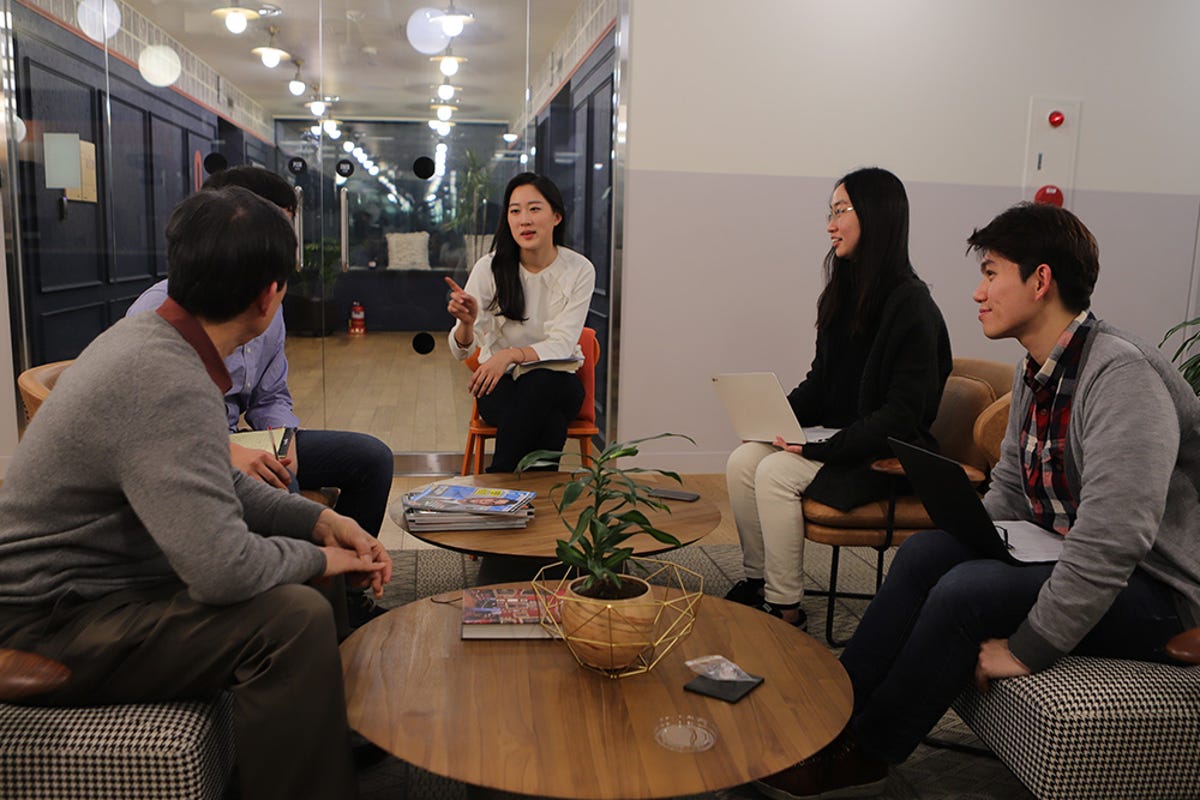
2019 fellow Jenny Cho
Health systems and healthy returns: innovative approaches that transform care
2021 fellow Edwina Sharrock entered entrepreneurship with the launch of Birth Beat — which delivers modern, midwife-led childbirth classes — to fill the gap she identified for supportive, non-judgmental birth education after she gave birth. As a midwife herself, Edwina leveraged her personal experience, along with her management background in Disaster and Emergency Management for New South Wales Health, to scale her local, in-person classes into a digital healthtech platform partnering with some of the country’s largest employers. In 2023, Birth Beat was acquired by leading medical technology company, Device Technologies.
Leonora O’Brien, 2014 fellow, is another founder in the health sector with deep management experience. Her roles have included chief pharmacist for the largest pharmacy group in Ireland, European manager for an international pharmaceutical company and a position with the Irish pharmacy regulator. Knowing the pharmacy system inside and out put her in an excellent position to launch healthtech business Pharmapod, which develops software to reduce medication errors and promote patient safety. Leonora took the business from strength to strength before it was acquired in 2021 by Think Research, a Toronto-based industry leader in integrated digital healthcare solutions.
2024 fellow Frances Bilbao’s solution also focuses on supporting new and expectant mothers and neatly complements Edwina’s. Mums Matter Psychology provides specialized, affordable and accessible mental health support for women during the transition to parenthood. It was set up after Frances, a clinical psychologist and mother of three, was disappointed by the lack of support for new mothers she witnessed both personally and professionally. Through partnerships with governments, her team of clinicians provides counseling for free or at low cost to thousands of women in need across Australia. In late 2025, Frances announced that Mums Matter Psychology had been acquired by healthcare group HealthBright, which specializes in digital mental healthcare solutions.
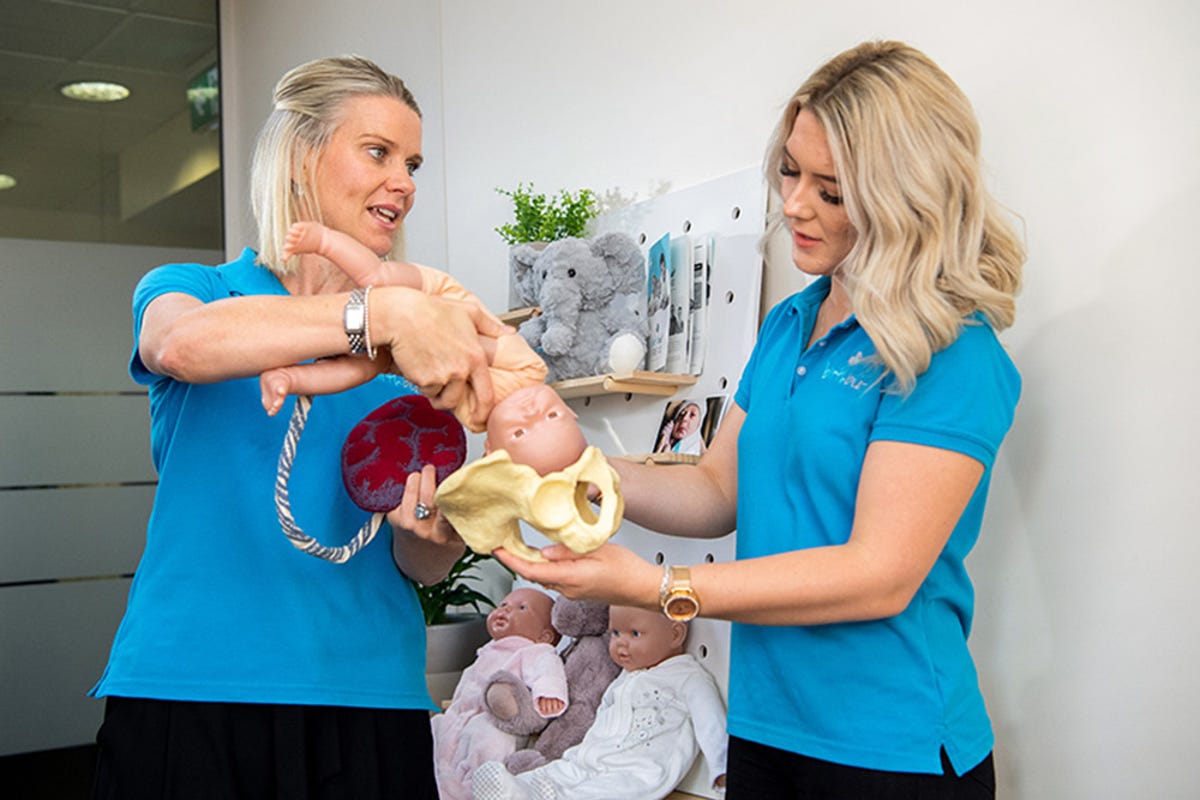
2021 fellow Edwina Sharrock
Investing in resilience: market-ready solutions for a warming world
Nearly a quarter of Cartier Women's Initiative applications are from entrepreneurs working on climate change and renewables, a sector that has grown dramatically since the initiative was established nearly two decades ago.
Looking back to 2014, fellow Emilie Mazzacurati’s business, Four Twenty Seven, was a pioneer in the integration of climate data in financial decisions to help banks and investors assess the physical impacts of climate change on their portfolios. Emilie studied in the United States before her market analyst and carbon market research career took her from Paris and Brussels to Thailand and Cambodia. She was inspired to create Four Twenty Seven after Hurricane Sandy demonstrated that the lack of planning for climate impacts could bring even the most powerful financial institutions to their knees. She built Four Twenty Seven into the leading provider of market intelligence on the economic risk of climate change before it was acquired in 2019 by Moody’s, one of the Big Three credit ratings agencies.
More recently, 2021 fellow Andrea Barber was frequently frustrated by inefficiencies inherent in the solar power design process she experienced while working as an engineering consultant for a renewable energy company. Andrea set up her software-as-a-service (SaaS) business, RatedPower, to develop cloud-based software that could automate and optimize all stages of solar energy plant creation, from study and analysis to design and engineering. Motivated by a personal sense of urgency regarding the climate crisis and the transition to renewables, the Spanish startup scaled significantly and attracted the attention of U.S.-based Enverus, a company specializing in energy-focused SaaS products. In 2022, Enverus acquired RatedPower.
2023 fellow Wendy Owens spent an idyllic childhood climbing trees and swimming in streams, followed by an early career as a hiking and canoeing guide. While exploring outdoors, Wendy discovered a wild grass with unusual characteristics and potential for use as biofuel. She decided to start an impact venture to scale her commitment to conservation by realizing this promising business opportunity. Following a period of research and development, she developed XanoGrass™, the fast-growing, non-invasive flagship product of her biomaterials feedstock business, Hexas Biomass. This highly resilient grass thrives on non-arable land, helps regenerate contaminated soils and presents additional income opportunities for farmers. XanoGrass™ saves trees by replacing wood pulp, but its uses go far beyond that — it can be substituted for corn and fossil-fuel-based raw material in everything from biofuels to paper and bioplastics. In 2025, Hexas Biomass was acquired by sustainable fuels producer Bioleum Corporation.
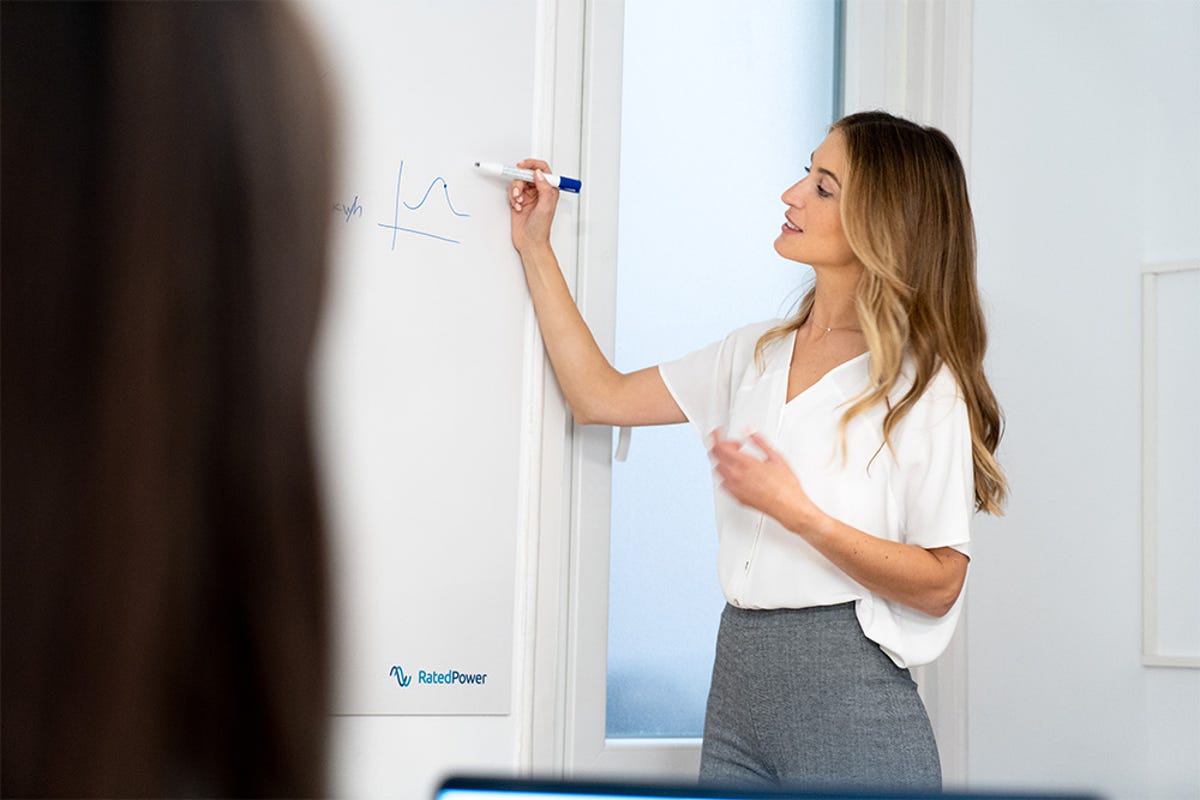
2021 fellow Andrea Barber
Tech-enabled impact: ambitious ventures tackling global challenges
In 2013, fresh from her electrical engineering graduate degree, fellow Victoria Alonsoperez won the World Intellectual Property Organization Best Young Inventor Award for her satellite-enabled livestock tracking invention. This game-changing solution soon became Chipsafer, a business offering real-time animal tracking and health, behavior and transaction information. This intervention improves the safety, security and traceability of livestock herds and promotes sustainable farming. After founding Chipsafer in her native Uruguay, Victoria moved the business to Singapore in 2020 to continue its global expansion. In 2024, Chipsafer was acquired by Singapore-based spacetech company NuSpace.
Business as a force for good
We dare to imagine — what would the world look like if every business recognized its responsibility to people and planet? It starts with our vision: a world in which every woman impact entrepreneur driving social and environmental change can achieve her full potential.
Our Global Program Director Wingee Sin concludes, “The remarkable women impact entrepreneurs in the Cartier Women’s Initiative community prove every day that business as a force for good isn’t just the right thing to do; it can also deliver significant financial returns. With the exciting exit and acquisition news from our fellows this year, they are the proof that purpose and profit go hand in hand.”
For investors, these acquisitions are more than good news stories. Instead, they are evidence of a growing pipeline of scalable, profitable impact businesses led by women worldwide and an overlooked source of investment potential waiting to be tapped.
This list includes only a selection of exits from entrepreneurs in the Cartier Women’s Initiative community. Follow our LinkedIn page to stay connected and keep up with the latest fellow news.
Read More

Insights
Pausing with purpose
Read another of our community stories about how two community-led retreats proved the power of disconnecting.
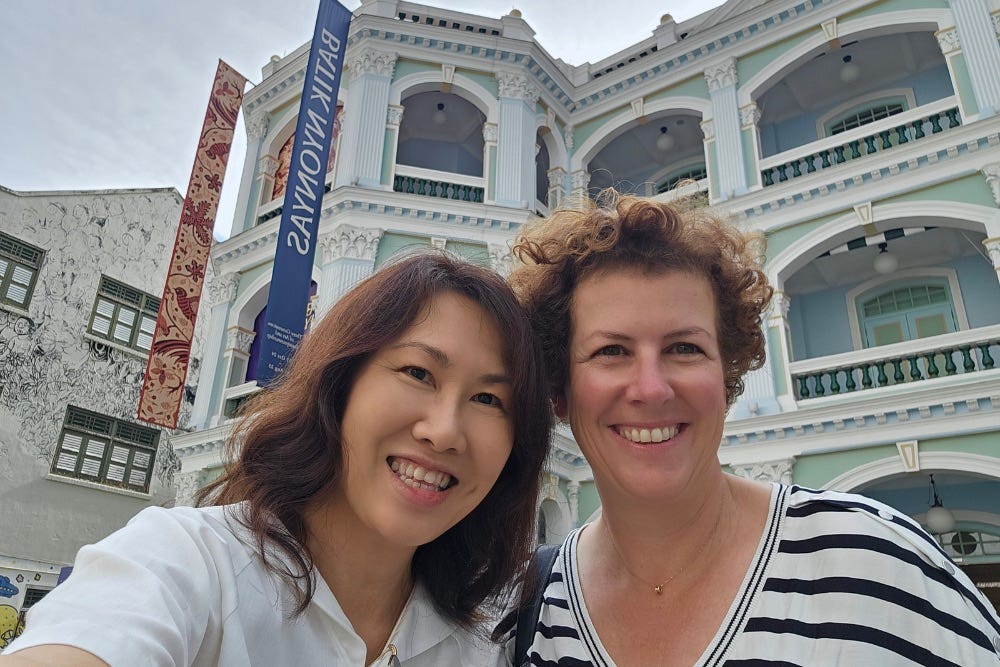
Inights
A surgeon, an investor, a shared vision
Be inspired by another of our community stories about how two community members are transforming access to vital earcare, one click at a time.
.png?&quality=80&auto=webp)
Insights
Her mission spoke to my soul
Read another community success story about how a simple speaking opportunity spurred the School of Concepts’ international expansion.